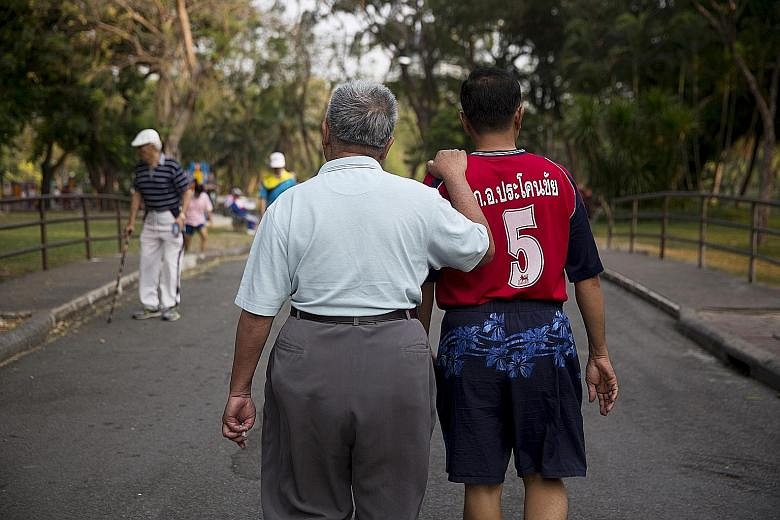South-east Asia, once known for its post-war youthful vigour, is ageing.
In Thailand, the biggest economy on the mainland, 10 per cent of the population is aged 65 or older.
By 2040, 17 million - a quarter of the population - will be above 65, according to a new World Bank report on ageing societies in East Asia released yesterday.
"Thailand's working-age population is peaking; the share of the population from ages 15 to 64 is never going to be higher than it is right now," said Mr Philip O'Keefe, lead author of the report.
Contributing to this trend is a fall in the birth rate. Thailand's national fertility rate is 1.5 children per woman while the rate in capital Bangkok is just 0.8.
Also, women in the workforce withdraw from work earlier than men and far earlier than women in rural communities.
Ominously, Thailand will get older before becoming richer - and may be ill-equipped and inadequately resourced to deal with the problem of a much older population. Already, households headed by the elderly are twice as likely to be poor as those headed by people in their 30s and 40s.
"The situation is really kind of urgent," said Mr O'Keefe.
While the reality of an ageing society with fewer young people in the workforce comes as Thailand experiences a period of economic stagnation, falling foreign direct investment and soaring household debt, there are some silver linings.
Thailand has a universal health scheme and a universal pension scheme in which every elderly citizen gets 500 baht (S$20) a month.
"China and Thailand are relatively better prepared," said Mr Nicholas McTurk, population and development specialist at the Asia-Pacific office of the United Nations Population Fund in Bangkok.
Mr O'Keefe said two days of meetings with the National Economic and Social Development Board - a state policy and planning agency - to discuss the report had been positive. The World Bank prescribes broad structural reforms, including raising the retirement age - which is currently 65 - and beefing up education and skills training.
"From a demographic perspective there are risks and those risks are increasing," said Mr O'Keefe, noting that the challenge was to design the right policies. "Consensus will need to emerge."

